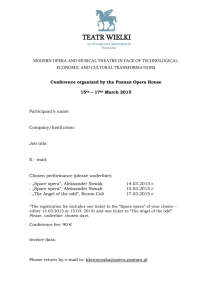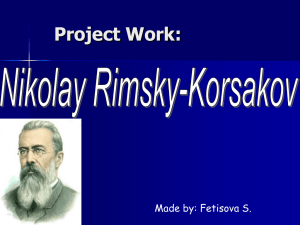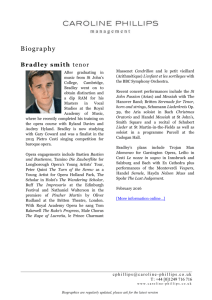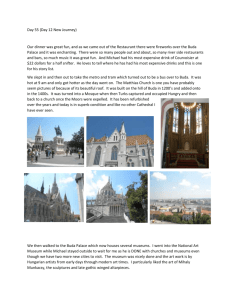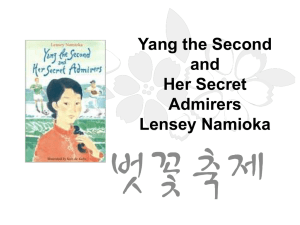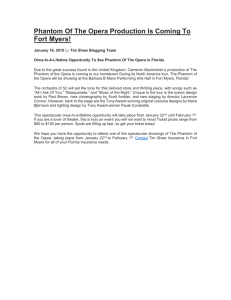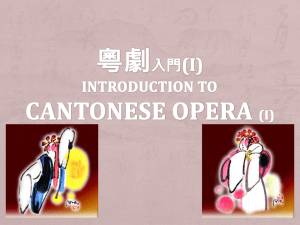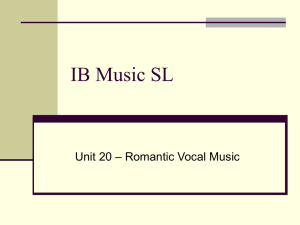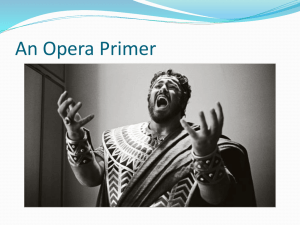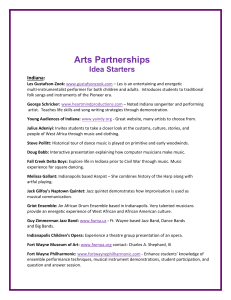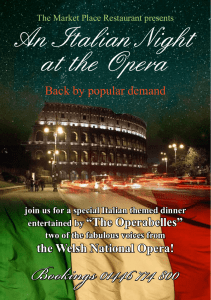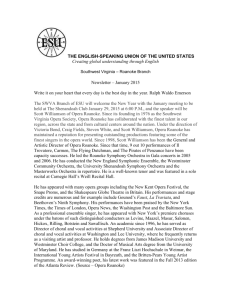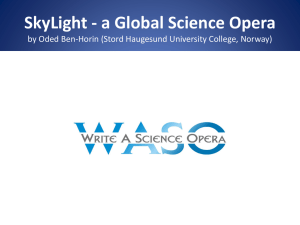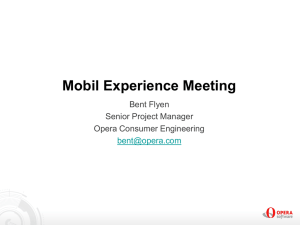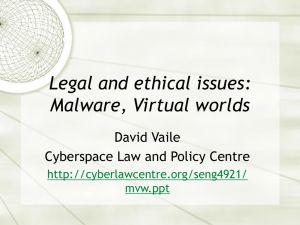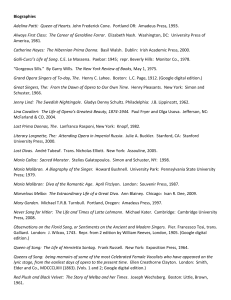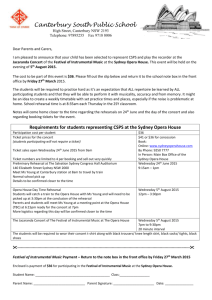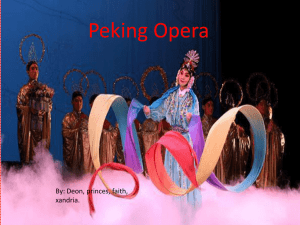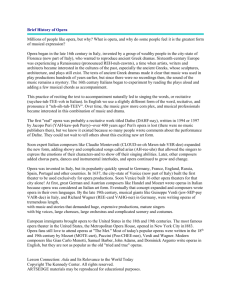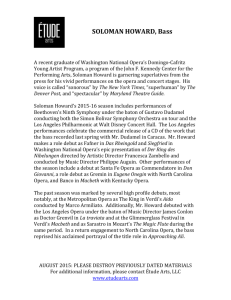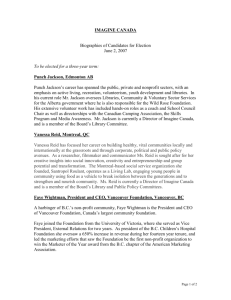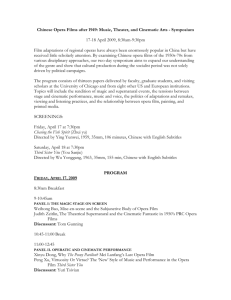The Humanities Initiative at MCIS is an exciting new venture
advertisement
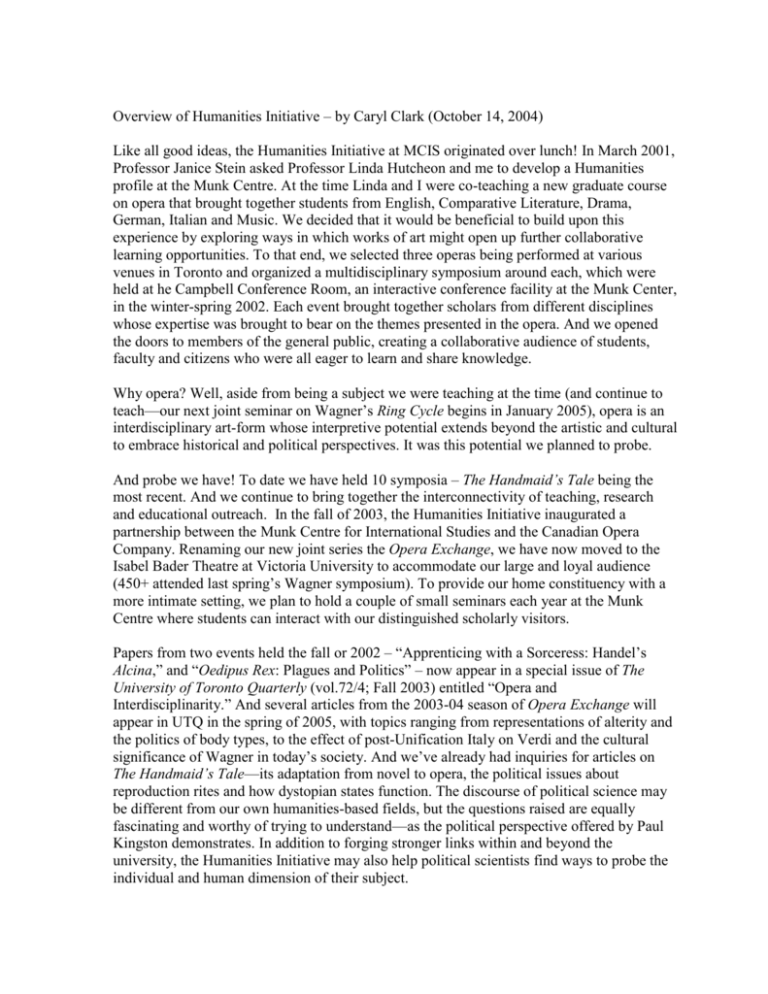
Overview of Humanities Initiative – by Caryl Clark (October 14, 2004) Like all good ideas, the Humanities Initiative at MCIS originated over lunch! In March 2001, Professor Janice Stein asked Professor Linda Hutcheon and me to develop a Humanities profile at the Munk Centre. At the time Linda and I were co-teaching a new graduate course on opera that brought together students from English, Comparative Literature, Drama, German, Italian and Music. We decided that it would be beneficial to build upon this experience by exploring ways in which works of art might open up further collaborative learning opportunities. To that end, we selected three operas being performed at various venues in Toronto and organized a multidisciplinary symposium around each, which were held at he Campbell Conference Room, an interactive conference facility at the Munk Center, in the winter-spring 2002. Each event brought together scholars from different disciplines whose expertise was brought to bear on the themes presented in the opera. And we opened the doors to members of the general public, creating a collaborative audience of students, faculty and citizens who were all eager to learn and share knowledge. Why opera? Well, aside from being a subject we were teaching at the time (and continue to teach—our next joint seminar on Wagner’s Ring Cycle begins in January 2005), opera is an interdisciplinary art-form whose interpretive potential extends beyond the artistic and cultural to embrace historical and political perspectives. It was this potential we planned to probe. And probe we have! To date we have held 10 symposia – The Handmaid’s Tale being the most recent. And we continue to bring together the interconnectivity of teaching, research and educational outreach. In the fall of 2003, the Humanities Initiative inaugurated a partnership between the Munk Centre for International Studies and the Canadian Opera Company. Renaming our new joint series the Opera Exchange, we have now moved to the Isabel Bader Theatre at Victoria University to accommodate our large and loyal audience (450+ attended last spring’s Wagner symposium). To provide our home constituency with a more intimate setting, we plan to hold a couple of small seminars each year at the Munk Centre where students can interact with our distinguished scholarly visitors. Papers from two events held the fall or 2002 – “Apprenticing with a Sorceress: Handel’s Alcina,” and “Oedipus Rex: Plagues and Politics” – now appear in a special issue of The University of Toronto Quarterly (vol.72/4; Fall 2003) entitled “Opera and Interdisciplinarity.” And several articles from the 2003-04 season of Opera Exchange will appear in UTQ in the spring of 2005, with topics ranging from representations of alterity and the politics of body types, to the effect of post-Unification Italy on Verdi and the cultural significance of Wagner in today’s society. And we’ve already had inquiries for articles on The Handmaid’s Tale—its adaptation from novel to opera, the political issues about reproduction rites and how dystopian states function. The discourse of political science may be different from our own humanities-based fields, but the questions raised are equally fascinating and worthy of trying to understand—as the political perspective offered by Paul Kingston demonstrates. In addition to forging stronger links within and beyond the university, the Humanities Initiative may also help political scientists find ways to probe the individual and human dimension of their subject.
